Hello and welcome to another audio version of Burnt Toast!
This is a newsletter where we explore questions and sometimes answers around fatphobia, diet culture, parenting and health. I’m Virginia Sole-Smith. I’m a journalist who covers weight stigma and diet culture. I’m the author of The Eating Instinct and the forthcoming Fat Kid Phobia.
Today I am chatting with Christy Harrison, a dietitian, host of the beloved Food Psych podcast and author of Anti-Diet, one of my favorite books, and the forthcoming Rethinking Wellness. Welcome, Christy!
Christy
Thanks, Virginia. So good to be here.
Virginia
I’m so glad to have you on. Christy and I have been guests on each other’s podcasts over the years, so it is fun to be doing it again.
Christy, I am sure most of my listeners are going to know your work because you are kind of a legend in this space. But why don’t you give us a little background on you and your work?
Christy
Like you said, I’m a journalist and dietitian. I started my career as a journalist, and also had my own undiagnosed eating disorder at the time. It kind of made me obsessed with food, nutrition and health, and that’s what I sort of fell into reporting on. And that can really exacerbate disordered eating. Even people who don’t have pre-existing disordered eating, sometimes falling into those beats can create some disorder in one’s relationship with food. So I really struggled with that, but was slowly recovering and had a therapist and had some good people around me, supporting me to at least expand my horizons a little bit with food. I ended up working at a food magazine, Gourmet—RIP—and worked there for a couple years until it folded. And during that time, I realized that the magazine was maybe a little bit on the rocks, and the magazine industry in general was not a great—
Virginia
Not a sustainable business model—
Christy
Yeah, not the most sustainable, and that has really kind of proven to be true. So I went back to school to get my dietitian’s license and get my master's in public health nutrition. And at the time, my goal was to be the next Michael Pollan, or like, Michael Pollan meets Marion Nestle. I wanted to write about sustainability and food systems and ending the “obesity epidemic.” I had really bought into that rhetoric. I think it came out of my own disordered relationship with food and how much I had bought into to diet culture, and specifically the version of diet culture that I now call the wellness diet, which was sort of birthed by the Michael Pollan paradigm. You know, “eat food, not too much, mostly plants,” which is enough to just drive a person up a wall, thinking about the minutiae of that. And of course, my thinking about calories and carbs, and all the sort of overt diet-culture stuff never really went away, either. So it was just a hot mess in my head.
Fortunately, when I was in grad school, I started researching a book that I never ended up writing, but that kind of, in a roundabout way, became the basis of Anti-Diet 10 years later. And that original book that I was researching was about emotional eating. I considered myself an emotional eater at the time. I now can see that it’s because I wasn’t eating enough. When people are deprived of food, it makes them eat more in response to emotions, and it also can make them eat more and attribute it to emotions, when really it’s attributable to the deprivation itself, to hunger.
I wasn’t really aware of all that. But I started to find research on restrained eating and the effects of that. And I discovered the book Intuitive Eating. And those things started to shift my relationship with food, especially the book Intuitive Eating, and I started to try to practice that and brought it into my therapy. Fortunately, I had been an intuitive eater up until the age of 20, when my eating disorder started. Luckily, no one had interfered in my relationship with food growing up, so I was able to have that intuitive relationship with food, I think largely because of thin privilege—which is the privilege of being thin enough to have nobody say, “you’re too big, you need to lose weight,” and also the privilege of having food security. Those things allowed me to keep on eating intuitively through my adolescence, and I think it was a little bit easier to click back into it because I had that base. It did still take a long time, it took years to really heal my relationship with food, get back to a place of intuitive eating. But I think having that sort of memory was helpful.
Once I had gone through that I, you know, was now a nutritionist and soon to be full-fledged dietitian, and I worked for three years as a nutritionist at the New York City Department of Health. And that’s while I was recovering, and sort of re-learning intuitive eating. So the cognitive dissonance of what I was teaching and preaching to people, and what I was doing in my own life, started to be pretty clear to me. I started thinking a lot more about people’s relationships with food, and what makes someone a disordered eater versus having a peaceful relationship with food. And I realized that was the direction I wanted to go in my career. That’s what led me to the eating disorder field and to starting the podcast in 2013, and where I ended up now, I guess. Along the way, of course, I picked up more about Health at Every Size, and an anti-diet approach that I think is really necessary for working with disordered eating, but also for working with any client on any nutritional issue. People of all shapes and sizes, and people of all backgrounds really deserve to have an intuitive relationship with food and a peaceful relationship with food and not to be told what to eat or policed about their food choices.
So that’s the perspective I come from now: How can I partner with people and support people through my journalistic work to reconnect with their own innate wisdom about food and nutrition in their bodies?
Virginia
That’s the piece of the conversation that I see missing over and over, when we look at the work of the Michael Pollans of the world or the wellness industry where it is today. There’s no recognition of the emotional piece of this, the oppression that many people face around their bodies and the way the world treats them for their bodies.
Christy
It’s really seen as education is the answer to everything. And I don’t know anyone I’ve seen as a client who hasn’t sort of “known what they were supposed to be doing,” right? They come in saying, you’re gonna tell me I’m bad. I eat this. I’m so ashamed of myself, I eat a lot of processed food, or whatever. People know what the “rules” are. The fact that they’re not following them speaks to the arbitrariness and messed-up-ness of the rules themselves.
Virginia
And the unsustainability of them, ironically, given that it’s often framed as this effort to find sustainability.
I got to know Christy when I interviewed her for The Eating Instinct. Her story is in chapter two, which was excerpted in Medium. When we first met, we both had these early experiences in the magazine world. I was at a magazine called Organic Style, so it was sort of in the same realm, but not a food magazine full on, but very much an incubator of a lot of this wellness industry stuff in the early years of that, and we both had these complicated journeys out of that space. So it’s kind of cool that we both ended up where we are.
I’ve got some listener questions that I wanted to put your way. The first is getting at this intuitive eating versus processed food concept, which you sort of touched on a little bit there, and is something folks struggle with a lot. I get a version of this question all the time, but this person wrote:
“I love the idea of intuitive eating, but wonder how it works with modern processed food, which is designed to keep us eating more and more. I have heard the processed food hijacks our body’s natural impulses, that sugar and white flour are addictive. I’m especially interested in this question as I get ready to introduce solid food to my baby.”
A lot to unpack there.
[Editor’s Note: You can read Virginia’s full response to this question here.]
Christy
I get versions of this question a lot, too, and I think it’s fascinating because when I first was coming into the intuitive eating space, I still had a lot of that Michael Pollan baggage with me. And I thought, well, maybe there’s a way to bridge these two worlds and think about food politics and how “bad” processed foods are, but do it through an intuitive eating lens where we’re not demonizing anything. And through a lot of reflection on that, I sort of realized, it’s not really possible to bridge those two worlds because the Michael Pollan world is so rooted in—and I keep calling him out as the exemplar of this, but it’s so many people now, the whole wellness industry basically, now—but that world is so rooted in this concept that fat is bad, that eating certain foods makes us fat, and makes us inherently unhealthy, so we need to cut out those foods and it really demonizes certain foods and elevates others.
I’ve come to see that that’s really a hallmark of diet culture, and very much a hallmark of this modern guise of diet culture that I call the wellness diet, which is really diet culture disguising itself as health and wellness. It’s still about restriction and deprivation and fatphobia, shaming certain types of bodies and elevating others, and shaming certain types of foods, both because of their perceived connection to higher weights, and also because of other baggage about those foods being “unhealthy” in and of themselves. So now I think that is just fundamentally incompatible with intuitive eating, because one of the principles of intuitive eating is make peace with food, and this full unconditional permission to eat all foods.
What I’ve found and what the research bears out, is that when people are truly not deprived of anything, when they don’t see anything as bad or off limits, they paradoxically are able to modulate their eating in a way that is much more aligned with their body’s desires and needs. They’re not in this restrict-binge cycle, with particular foods or with food in general. There’s some research that I cite in my book about the effect of dietary restraint on people’s eating and even their brain activity in response to certain types of foods specifically like sugar, processed foods, you know, “processed” foods and highly palatable foods that are so demonized in our culture. What researchers found is that people who are restricted and deprived, people who are restrained eaters aka chronic dieters, do eat more in the presence of highly palatable foods, do eat more, get more brain reward from sweet foods [Editor’s Note: use of weight-stigmatizing language], and also eat more in the presence of food advertising, and also diet advertising.
There are ads encouraging people to eat more foods that are delicious, and also ads encouraging people to eat less, or eat more diet foods, and all of those things dieters are actually more susceptible to doing. Dieters will eat more of the foods that they are told are “good” as well as foods that diet culture deems “bad” in the presence of that kind of marketing. And their brain activity in response to sweet foods is far greater.
People who are not restrained eaters, people who are not chronic dieters, don’t show that same response. They actually eat the same amount in the presence of food industry and diet industry marketing, they have way less brain activity in response to sweet foods, they might still have some activity in the pleasure centers because, of course, sweetness is pleasurable. And we all deserve that, we all deserve to have pleasure in food, but there’s not this immense reward because there wasn’t the immense deprivation. When you’re more deprived of something, you tend to gravitate towards it more, and you tend to have a greater reward from that food. And then of course, the corresponding guilt afterwards.

Virginia
That’s so interesting, and what I’m just thinking about, as you’re talking, is how we so often hear this conversation demonizing highly palatable foods, processed foods, and demonizing food marketing for making us want more and more, but we don’t talk very often about how much that marketing is playing into the restrict-binge cycle. So much of the advertising around foods that are “highly palatable” or whatever you want to call it is sort of playing into that rhetoric that you should indulge, that message is not subtle at all in the advertising. And then the diet industry messaging is really the flip side of the same coin in terms of the marketing. We don’t think enough about how it’s not really the food itself. It really is this conversation around food that’s making us feel addicted to it or out of control around it.
Christy
And I think people like Michael Pollan, and Eric Schlosser, and Marion Nestle—
Virginia
And that new guy, Michael—
Christy
Yeah, yes. Michael Moss, Salt, Sugar, Fat.
They all sort of make this connection, which actually, in research methods, we call the ecological fallacy, which is like “X thing happened in this community around a certain time, and Y thing also happened, so X was the cause of Y.” In this case, processed food advertising increased, portion sizes increased, and then “obesity” increased, and therefore, these increases in portion sizes, and the type of marketing, made people fat.
My response to that is, if we actually step back and look at the cultural context, what was happening leading up to, most people will cite the 1970s as sort of when people’s body sizes supposedly started increasing. Diet culture existed for, you know, about 100 years before that, and really, in a concerted way for 50 years or so before that, and the market share of the diet industry was steadily increasing, and the number of people who were dieting and restricting really increased every decade from, you know, the 1910s, onward, 1920s onward, and reached kind of a fever pitch in the 1970s. So that was the context in which portion sizes also increased and food advertising increased. You have to think, well, what does that sort of mass food deprivation do to people? It makes them crave more food.
So if the industry was, in fact, increasing portion sizes and so on, some of that may have had to do with increased demand from an increased number of starving or deprived people. People want bigger portions when they’re deprived of food. You have to sort of take it as a whole, right? We can’t just blame the food industry—and also, blaming anything for people’s body size is inherently fatphobic and stigmatizing. I think looking for a reason for why people are larger is missing the point. We really don’t need to be talking about weight in that kind of pathological way. But we need to talk about this cultural context that makes people think their bodies are too large, makes people fear fatness and demonize fatness and want to do anything to outrun it, including these really extreme, but sometimes also, “less extreme” or “light” or “healthy” diets. Any sort of restriction and taking yourself away from that intuitive relationship with food interferes with that innate connection with food that we’re all born with, and sets people up for that restrict-binge cycle and other forms of disordered eating and exercise.
Virginia
Yes to all of that. On a related note, the other thing I wanted to chat about is diet foods as a sort of cultural concept. I wrote a piece a few weeks ago about how I continue to love Diet Coke, and also protein powder. I’m somehow more embarrassed about the protein powder. But anyway.
Even though it’s been, you know, a good six years plus, since I went on an official diet, and I’ve been out of diet culture in terms of my own head for that long, these are foods that, once I stripped away the diet stuff, I just enjoyed them, and I just eat them without the diet mindset. When I wrote about this, there were a couple of really interesting responses. Quite a few folks said something like, oh, I don’t eat diet foods, I just eat small portions of the real thing I want. And that, to me, is diet mentality. Right?
Christy
I think it’s so interesting that people are saying, “I just eat small portions of the real thing.” There’s something about this need to limit, that is very much the diet mentality. Because why not just say, I eat however much I want of the real thing?
In your case, I mean, I read that piece. And I thought it was really fascinating, the way that you sort of analyze your relationship with those products. Especially in the case of Diet Coke, where it’s something that you grew up with where you weren’t dieting when you were first exposed to it. It was like the taste, the just literal flavor of the diet version, instead of the regular version is what appeals to you.
Virginia
Because my family was dieting, but I was not. Like, they bought it out of a diet mindset for sure.
[Editor’s Note: Virginia’s dad says it was about dental health! Do with that what you will…]
But that was not my introduction to it or my experience of it.
Christy
Right, which is so interesting and different, because it’s like this second hand inheritance of diet culture, but you weren’t being pushed to diet yourself.
Virginia
Because I had thin privilege, I should underscore, because I was a thin kid. And so people weren’t expecting that of me. I was allowed to just experience the magic of Diet Coke. But also as diet culture has morphed into wellness culture, there is now this disdain for something like Diet Coke. Other people were saying to me, “Oh, I don’t let myself drink Diet Coke because of the chemicals or because of the aspartame.” Someone said, “Actually, that was something I didn’t let myself drink when I was dieting, because I was clean eating. And now I’ve reclaimed it.”
So there’s layers upon layers, this sort of Venn diagram happening between our feelings about processed foods and our feelings about these diet foods. And in both cases, it seems to me that we’re really just food shaming, right? We’re still playing into this idea that there’s this hierarchy around food we need to ascribe to.
Christy
Especially with that idea of “chemicals” or that Diet Coke, or regular Coke, for that matter, can’t fit into someone’s plan because it’s not healthy, or it’s demonized by this strain of wellness culture. So I think there’s so many different ways that people can relate to it. Your experience is one way where you kind of came by that flavor craving, honestly, you know, you were introduced to it in a way that was, for you at least, devoid of diet culture, not necessarily for the people introducing it to you. But for other people, maybe that was a staple in their dieting days, or in their disordered eating days. And that’s complicated too, right. Because if it’s a disordered eating thing, someone is drinking a lot of caffeine to try to avoid eating, then maybe they need to wean off of those kinds of products for a while and eat more food, and not have that disordered behavior of using caffeine to mask hunger. But maybe for other folks, like you said, the person who wouldn’t allow themselves to have it in their orthorexia clean eating days, maybe the sort of way of breaking out of that and of challenging diet culture is to actually have it and to reclaim it. It’s really different for everyone.
Then there’s a political consciousness that comes in that says, you know, I don’t want to buy something that has died on the label, because I don’t want to contribute to that. That’s another way of potentially relating to that, too. But then I think if you’re shaming yourself for what you really want, then maybe the real trick is to drop that political consciousness for the moment so that you can engage with the food you really want, so that you’re not creating this sense of deprivation or lack of permission with something that you really love. If it’s something you don’t really love, and you’re sort of like, take it or leave it, then maybe that’s a situation where you can say, I don’t go in for that stuff. You know?
Virginia
We were then talking about the diet foods that we’ve reclaimed and Skinny Pop Popcorn came up a lot. And I thought, oh, God, I’ve never bought that, and it’s completely a reaction to the word skinny. I’m just really turned off by this sort of overt fat shaming of that product. But while that’s sort of a logical response to that marketing campaign, it also means that I’m banning a food. As it happens, I don’t really like popcorn, so I don’t think in this case, I’m depriving myself of something I would love. But you can really overthink this one.
Christy
You really can but sometimes you just got to go with what you love. When I was in my orthorexia days, I never got into juicing or green juice, because it was kind of early for that, in the early 2000s. For me, the juicing trend didn’t really come until the late 2000s, early 2010s. But these days, occasionally if I see green juice on the menu or something, or just out somewhere, I’m like, oh, that seems really good. Like, I want that flavor. And I’ll sometimes be like, oh, do I want to participate? Do I want to buy from this company that’s like so gross and wellness-y, and that’s sort of against a lot of what I stand for. Sometimes I’ll be like, I don’t want it that much. And other times, I’ll be like, that seems really good. I’m gonna have it. So it can be case by case, too, how you’re feeling on a given day.
Virginia
It’s useful too to remember that the rhetoric around voting with your dollars, that really comes out of the alternative food movement and the wellness industry. And, you know, there certainly is some power to it, consumers have a lot of power. But certainly in my case, if I was like, I’m not gonna buy Diet Coke, because it has diet on the label, but I’m gonna buy a different soda, I’d probably buy regular Coke. So the same company would be profiting off my decision. And I just would enjoy my beverage less. So it’s useful to remember that your individual purchase is not rocking the boat. There’s so much guilt that goes into being an ethical grocery shopper, and a lot of that is more diet culture messaging.
Christy
It really is out of this sustainability, Michael Pollanized wellness-diet version of how we’re “supposed to eat.” We don’t have as much power as individual consumers or even as a block of consumers, as we’re made out to have.
Virginia
Unfortunately, but it’s also somewhat freeing to realize that you can truly operate from that intuitive eating place and have what you love and not worry so much about it.
The last question that came in that I would love help unpacking is a little more complicated. This reader wrote:
“Okay, but what about diet foods you may not love, but which make you feel better. I am very sluggish and tired after eating rice. So I avoid it and make cauli rice. Not saying I love cauli rice, but I do prefer how I feel after eating it compared to actual rice. I don’t eat cauli rice with the intent to be dieting, but I’m aware of the impact certain foods have on me, and then make choices with that knowledge. I’m still trying to figure out if I’m attempting anti-diet culture properly.”
Christy
Such a good question. There’s so many layers to that too, right?
I don’t know where this person is in their intuitive eating process, but I think it takes years for people to truly be able to look at how they feel after eating a certain food without having it be colored by their diet culture beliefs about that food. In the case of something like rice versus cauliflower rice, it definitely raises a red flag for me. Where does this belief about how rice makes you feel come from? Is it actually because we’ve been fed so much about carbohydrates, and, as I’ve personally evolved in my own relationship with food — and I’ve seen this in clients too; this demonization of carbs, and this sense of like, carbs make me sluggish or make me crash or I don’t feel as good after eating them. But then over time, as the prohibition on carbs starts to fade, and you make peace with them, there’s the sense, like now, I actually am not satisfied by a meal or don’t feel energized after a meal if I don’t have carbs. And I think that’s really coming from a place of having gotten rid of all that diet cultural baggage about carbs and truly listening to my body and how it feels.
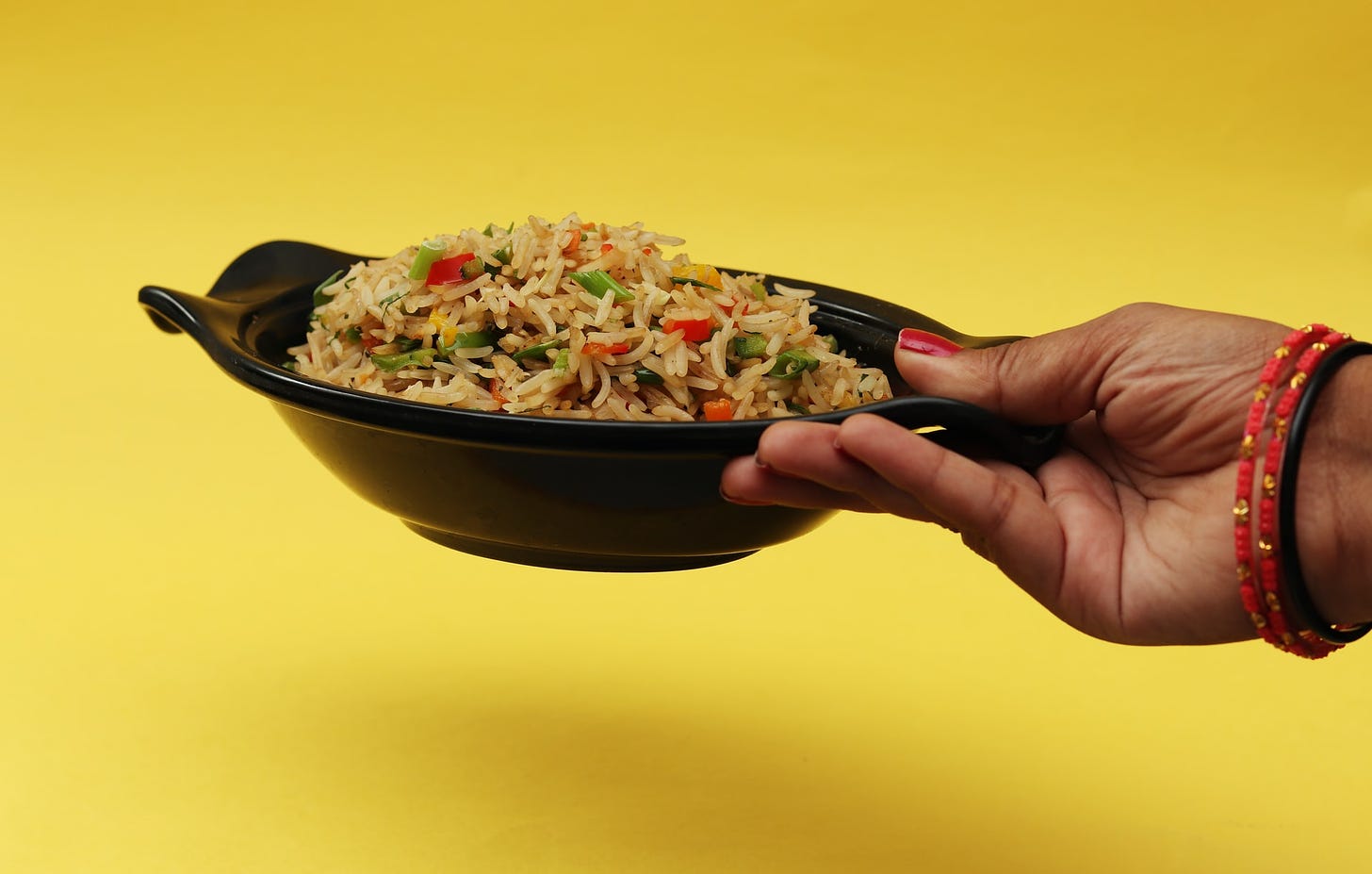
Playing with that, asking yourself, do I even need to be thinking about this right now? With clients and people in my online course, I often say: Put aside questions about how particular foods make you feel at first and focus on the other principles of intuitive eating. Gentle nutrition, which is the 10th and last principle, is the last principle for a reason because it is so tricky. And gentle nutrition doesn’t even have that much to do with how particular foods make you feel. It’s also about building meals that are going to be satisfying and sustaining and snacks that are going to be satisfying and sustaining and learning how to energize and nourish yourself. There’s this misconception about intuitive eating, that probably comes from the wellness diet, that comes from the strain of diet culture that’s like, X food makes you bloated and Y food makes you sluggish. And you know, those words, sluggish, bloated, like—
Virginia
They have a lot of implicit fatphobia. And they’re vague symptoms. I don’t want to discount her lived experience of her body, but they are symptoms that are difficult to name and pin down and tie to a concrete thing. There are a lot of reasons you might feel sluggish and tired on any particular day, totally unrelated to what you’re eating.
Christy
Diet culture has conditioned us to look to food as the source instead of thinking about how much sleep did I get, how stressed am I. So many different things can affect how we feel in our bodies, our level of fatigue, or energy, our sense of bloating and digestion and stuff like that. So I think kind of broadening the lens to what beyond the food is going on. We’ve talked previously about the nocebo effect or the converse of the placebo effect. The placebo effect is, you think something’s gonna make you feel better, and so it does, because there’s the power of that mind-body connection to actually help improve symptoms, like pain and fatigue and stuff like that. And then conversely, the nocebo effect is, you think something’s gonna make you feel worse, so it does.
That’s not to say it’s all in your head, because I know how dismissive that can feel, because I have had so many health conditions and concerns myself that doctors implied were in my head when that was not the case. What I mean is that our thoughts about particular foods and other things, medications and such, do really have an effect on how we feel when taking that food or medication. Thinking about that in relation to this question, too. Can this person sort of think through how much of this maybe is the nocebo effect? And how can you change your beliefs about regular rice so that you’re not putting all this pre-existing baggage on it, that might end up making you feel worse after eating it? Versus if you can divest a little bit from those beliefs?
Your relationship with rice and how you feel after eating rice might change.
Virginia
I think I also just came away with a little sadness, where she’s saying, “I’m not saying I love this food that I’m eating.” I just want people to eat the foods that they love. If you’re not loving it, then I think it’s worth looking at why you’re making yourself eat it. That’s where I land at the end of the day. And I think that goes for, you know, any diet foods.
Christy
As you were talking, it sort of struck me how it’s this conversation about rice versus cauliflower rice, but also why not rice versus pasta, or bread? Is there something about that? Are you actually avoiding all carbs and thinking that carbs are bad. Or gluten? [Editor’s Note: Of course, all rice is gluten-free, but fear of gluten often leads to a broader fear of carbs.] Is there a belief about gluten that is sort of coming from that nocebo place or that wellness diet place too that’s making you avoid those foods?
If the only option feels like it’s cauliflower rice, then I think there’s definitely some work to be done unlearning those negative beliefs about the other food. Of course, there’s a tiny percentage of people, like 1%, or less than 1% of the population, who has Celiac Disease and would need to avoid gluten. I’m not talking about that. But even people who do have Celiac, I think it’s worth working through the harmful negative beliefs you might have about gluten-containing foods so that you’re not demonizing anything in your mind, even if you’re not eating them for self care. Just allowing yourself to drop the negativity about particular foods can help you feel a little more grounded in your food choices. I definitely know some people with Celiac Disease who sort of rebel against that deprivation and restriction by eating gluten. And that’s not super helpful for their well-being, you know, that can be definitely physically uncomfortable and potentially harmful in the long term too. And so, you know, I think getting yourself to a place where you’re not in this restrict binge cycle is always helpful.
Virginia
That totally makes sense.
Christie, thank you so much. This was a really super helpful conversation. I always love chatting with you. Why don’t you tell listeners where they can find more of your work?
Christy
People can find more of my work on my website, ChristyHarrison.com, I actually do a weekly newsletter as well, at ChristyHarrison.com/newsletter. And I also have my book and podcast and all the other stuff I do there as well.



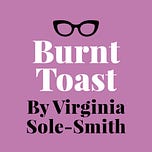

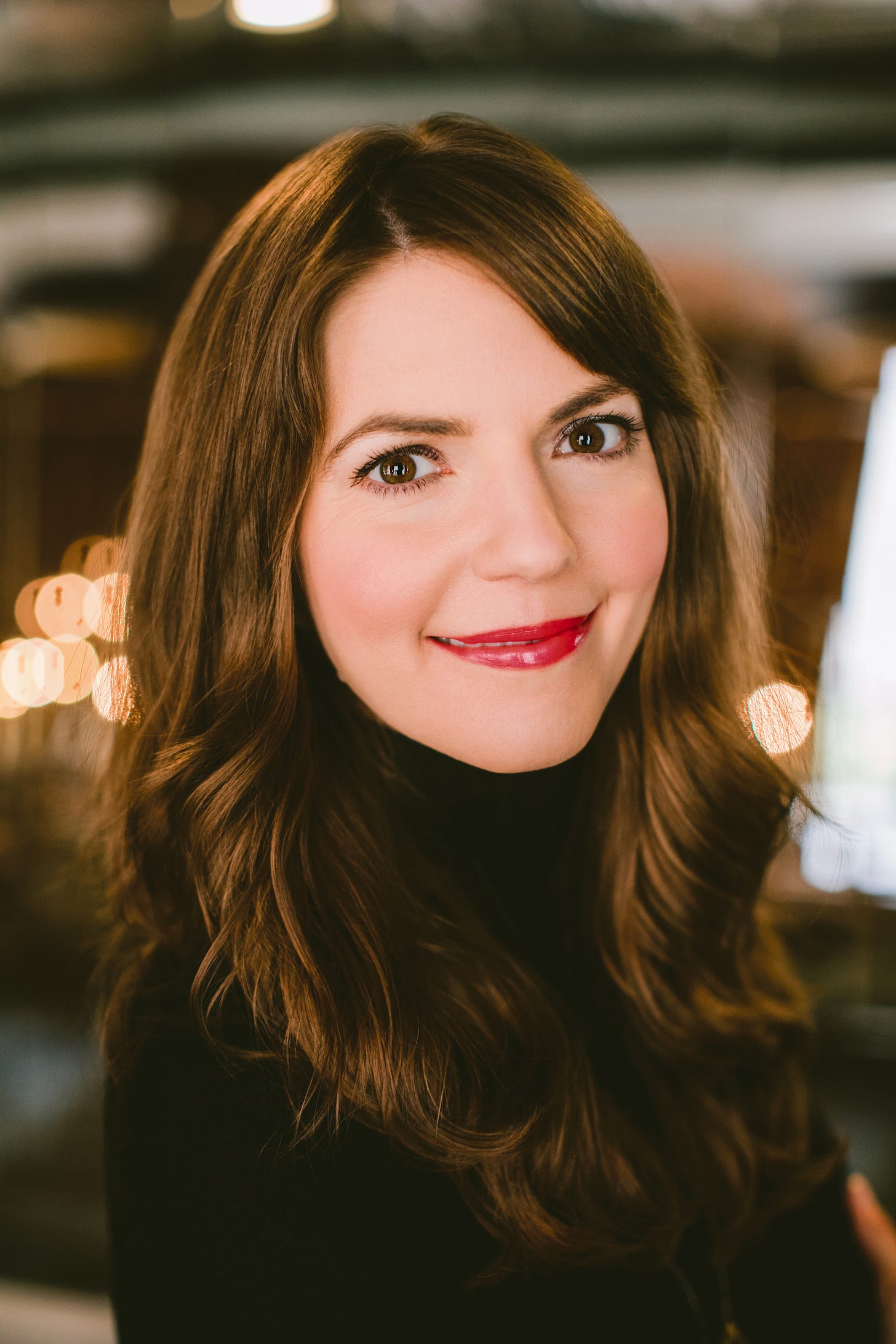


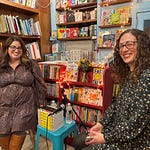
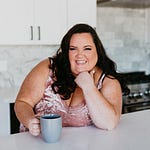
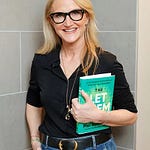
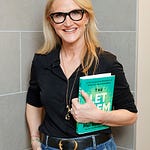




Share this post